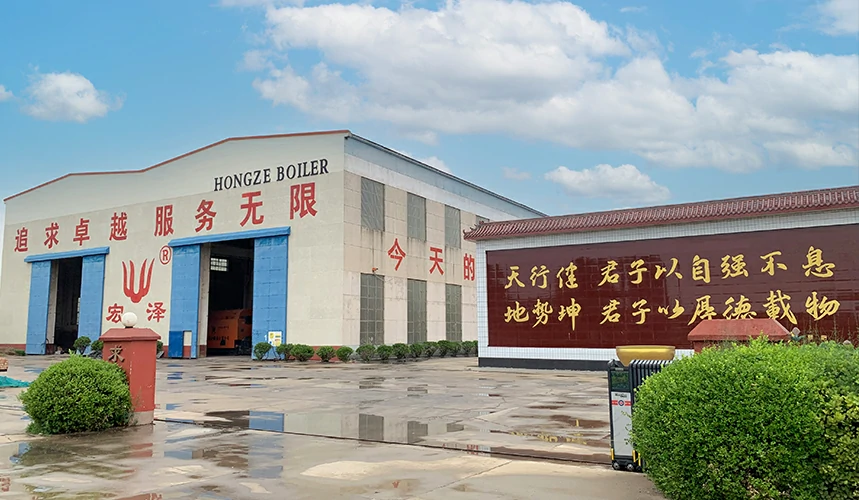
Nov . 14, 2024 06:21 Back to list
what is a biomass heating system
What is a Biomass Heating System?
Biomass heating systems are innovative solutions that utilize organic materials, such as wood, agricultural residues, and other biological matter, to generate heat. This method of heating is becoming increasingly popular due to its sustainability and environmental benefits. But what exactly is a biomass heating system, and how does it work?
Understanding Biomass
Biomass refers to any type of organic material that can be used as fuel. This includes wood pellets, chips, logs, crop waste, and even certain types of municipal waste. The key characteristic of biomass is that it is derived from living or recently living organisms, making it a renewable energy source. Unlike fossil fuels, which deplete over time, biomass can be replenished through responsible agricultural practices and forest management.
How Biomass Heating Systems Work
A biomass heating system typically involves a biomass boiler or stove. These appliances convert biomass fuel into heat through a combustion process. Here is a basic overview of how the system operates
1. Fuel Supply Biomass is stored in a hopper or in bulk, depending on the system's design. Common biomass fuels include wood pellets, logs, or briquettes.
2. Combustion The biomass is ignited, producing heat. Unlike traditional fossil fuel systems that produce emissions, modern biomass systems incorporate advanced technology to minimize pollutants and maximize efficiency.
3. Heat Distribution The heat generated from the combustion process is then used to warm water, which can circulate through radiators, underfloor heating systems, or hot water tanks, providing warmth for residential or commercial spaces.
4. Emissions Control Modern biomass systems are designed to burn fuel very efficiently, significantly reducing smoke and other emissions. Many units come equipped with filters and emission controls to comply with environmental regulations.
Applications of Biomass Heating Systems
Biomass heating can be applied in various settings, ranging from residential homes to large industrial facilities.
- Residential Heating Homeowners can utilize biomass stoves or boilers to provide heat and hot water for their homes
. These systems can be particularly advantageous in rural areas where biomass fuel is readily available.what is a biomass heating system

- Commercial and Industrial Use Businesses and factories can benefit from larger biomass boilers that provide heating for production processes or for heating large buildings.
- District Heating In some regions, biomass heating systems are used in district heating setups, where heat generated from a central biomass facility is distributed to multiple buildings within a community.
Advantages of Biomass Heating Systems
Biomass heating systems offer numerous benefits, including
1. Renewable Energy Source Biomass is renewable as long as it is sourced sustainably, providing a continuous energy supply.
2. Carbon Neutrality When biomass fuels are burned, they release carbon dioxide into the atmosphere. However, this CO2 was originally absorbed by the plants during their growth, making the process largely carbon neutral.
3. Waste Reduction Using agricultural waste, wood scraps, and other organic materials as fuel helps reduce waste in landfills and promotes recycling of materials.
4. Energy Independence Biomass can be produced locally, reducing reliance on imported fossil fuels and enhancing energy security.
5. Economic Benefits Biomass heating systems create job opportunities related to biomass production, processing, and system installation and maintenance.
Considerations and Challenges
While there are many advantages to biomass heating, there are also considerations to keep in mind. The availability of suitable biomass fuels, initial installation costs, and the need for regular maintenance and fuel storage are factors that potential users must evaluate. Moreover, careful sourcing of biomass is essential to ensure environmental sustainability, as overharvesting can lead to deforestation and habitat loss.
Conclusion
Biomass heating systems represent a practical and sustainable alternative to conventional heating methods. By utilizing organic waste and agricultural byproducts, these systems not only provide efficient heating solutions but also contribute to environmental sustainability and energy independence. As technology advances and awareness of renewable energy grows, biomass heating is likely to become an increasingly common solution for both residential and commercial applications.
-
Efficient Biomass Fired Hot Water Boiler | AI Heating Solution
NewsAug.01,2025
-
High-Efficiency Gas Thermal Oil Boilers | HPT Models
NewsJul.31,2025
-
Oil Fired Hot Water Boilers Sale - High Efficiency & Affordable
NewsJul.31,2025
-
High-Efficiency Commercial Oil Fired Steam Boiler for Industry
NewsJul.30,2025
-
High-Efficiency Biomass Fired Thermal Oil Boiler Solutions
NewsJul.30,2025
-
High Efficiency Gas Fired Thermal Oil Boiler for Industrial Heating
NewsJul.29,2025
Related PRODUCTS






















